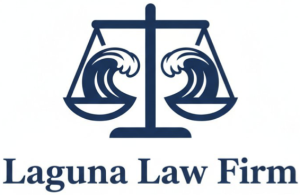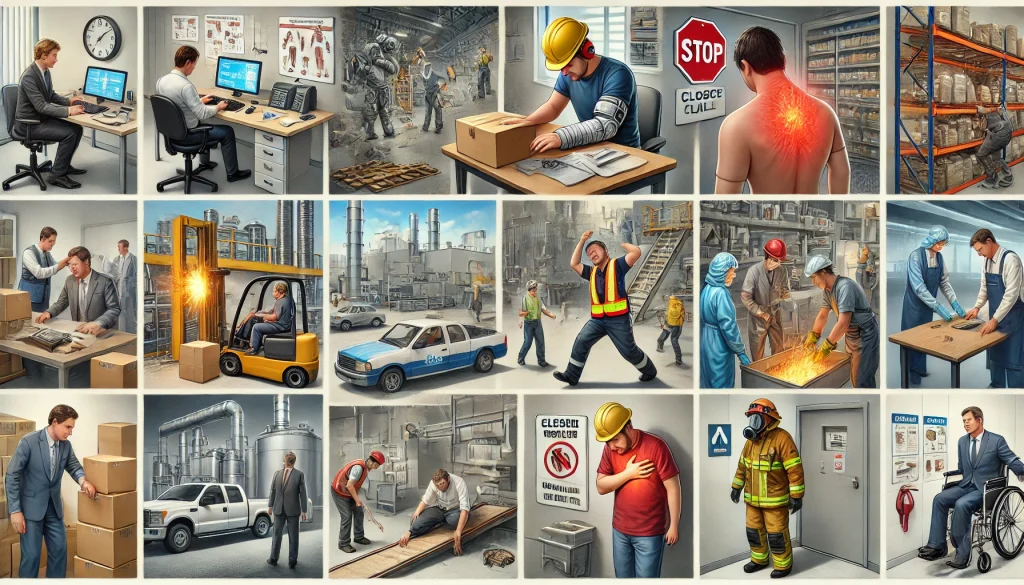If you’ve been hurt on the job in California, one of the first questions that probably popped into your head (right after “Will I be okay?”) is: “How am I going to afford a lawyer?”
The good news? In California workers’ compensation cases, you almost never pay a workers’ comp attorney out of pocket. That’s right — most injured workers pay $0 upfront and $0 hourly. Instead, experienced workers’ compensation attorneys work on a contingency fee basis, meaning they only get paid if they win money for you.
This guide breaks down exactly how much a workers’ compensation lawyer costs in California in 2025, what the fees really look like, hidden expenses to watch for, and why hiring a board-certified specialist (like the team at Laguna Law Firm) is often the difference between a denied claim and a six-figure settlement.
How California Workers’ Comp Attorneys Work on Contingency — No Win, No Fee
In virtually every workers’ compensation case in California, attorneys are paid through a contingency fee approved by the Workers’ Compensation Appeals Board (WCAB). Here’s what that means in plain English:
- You pay nothing upfront
- You pay no hourly rates
- You pay no retainer
- The lawyer only gets paid if they recover benefits for you (settlement, award, or additional benefits)
- The fee comes out of your final award — you never write a check
The standard contingency fee in California workers’ comp cases ranges from 9% to 15%, with 15% being the most common in complex or disputed casesThe judge must approve the exact percentage in every case, and attorneys have to file a formal fee disclosure.
2025 California Workers’ Compensation Attorney Fee Guidelines (Labor Code §4906)
| Complexity of Case | Typical Approved Fee | Common Scenarios |
|---|---|---|
| Simple/Stipulated Cases | 9%–12% | Undisputed injury, quick treatment, return to work |
| Moderate (some disputes) | 12%–15% | Denied treatment, temporary disability disputes, need for QME/AME |
| Highly Contested or Permanent Disability | 15% (sometimes higher if extraordinary effort) | Permanent & stationary rating disputes, vocational retraining, appeals to WCAB |
Example:
You settle your case for $100,000 (permanent disability + future medical).
Attorney fee at 15% = $15,000 (paid directly by the insurance company).
You walk away with $85,000 in your pocket — and you never paid a dime out of pocket.
Are There Any Upfront Costs or Hidden Fees?
99% of reputable California workers’ comp firms (including Laguna Law Firm) do not charge injured workers for:
- Case evaluation (always free)
- Medical records requests
- Filing the DWC-1 claim form or Application for Adjudication
- Doctor appointments or QME/AME exams
- Court filing fees
- Deposition costs
- Expert witness fees
These expenses are either advanced by the law firm and reimbursed from the settlement or paid directly by the insurance carrier.
Red flag: If any lawyer asks you for a retainer or hourly fee in a standard workers’ comp case, walk away. That’s not how it works in California.
When Can a Workers’ Comp Attorney Charge More Than 15%?
In rare situations, an attorney can petition the WCAB for a higher fee (18%–20%) if the case involves:
- Multiple appeals or reconsideration petitions
- Fraud investigation against the employer/insurer
- Federal Longshore & Harbor Workers’ cases layered on top
- Third-party liability lawsuits (separate from workers’ comp)
Even then, the judge decides — not the lawyer.
How the Attorney Actually Gets Paid (Step-by-Step)
- You hire Laguna Law Firm (free consultation at (949) 930-1386)
- We negotiate medical treatment, TTD checks, and permanent disability
- Case resolves via Stipulations with Request for Award or Compromise & Release
- Insurance company issues two checks:
- One to you (your net award)
- One to Laguna Law Firm (the approved attorney fee)
- You never touch the attorney fee money
Why Paying 15% Is Usually Worth It (Real Numbers from 2024–2025 Cases)
| Scenario | Without Attorney (Self-Rep) | With Experienced Attorney | Extra Money in Your Pocket |
|---|---|---|---|
| Back strain, 12% PD rating | $18,240 | $42,360 | +$24,120 |
| Knee surgery, vocational retraining needed | $65,000 | $185,000 | +$120,000 |
| Denied psychiatric stress claim | $0 (fully denied) | $135,000 | +$135,000 |
These are real (anonymized) Laguna Law Firm cases closed in 2024–2025. The higher settlement almost always dwarfs the 15% fee.
Long-Tail Keywords Injured Workers Actually Search For (And How We Help)
| Search Term (Monthly Searches in CA) | How Laguna Law Firm Delivers |
|---|---|
| “workers comp lawyer no win no fee California” | 100% contingency — you pay nothing unless we win |
| “how much do workers comp lawyers charge in California” | 9%–15% approved by judge — explained in free consultation |
| “best workers compensation attorney near me” (Orange County) | Board-certified specialists serving Laguna Beach, Irvine, Santa Ana, Anaheim |
| “workers comp settlement after surgery California 2025” | We fight for future medical + higher PD ratings |
| “denied workers comp claim lawyer California” | We overturn 80%+ of improperly denied claims |
| “workers comp attorney for nurses/teachers/construction workers” | Decades of niche experience in high-risk professions |
| “can I afford a workers comp lawyer if I’m not working” | Yes — $0 upfront, ever |
Frequently Asked Questions (2025)
Q: Will hiring a lawyer delay my checks?
A: No. Insurance companies often pay temporary disability faster once a reputable attorney is on record.
Q: What if I already have an offer from the insurance adjuster?
A: Bring it in. 9 out of 10 “offers” we review are 30%–70% too low. Free second opinion.
Q: Do I need a lawyer for a minor injury?
A: Maybe not. But if treatment is denied or you can’t return to your old job, call immediately — delays hurt ratings.
Q: Can the insurance company pay my attorney fees directly?
A: Yes — in fact, they usually do.
Q: What areas does Laguna Law Firm cover?
A: Statewide, with physical offices in Orange County and virtual consultations for all of California.
Don’t Leave Money on the Table — Get Your Free Case Review Today
If you’ve been injured at work anywhere in California — construction site in LA, warehouse in Riverside, hospital in San Diego, or office in San Francisco — you deserve every penny the law allows.
Call Laguna Law Firm now at (949) 930-1386 or visit lagunalawfirm.com to schedule your completely free, no-obligation consultation.
- No upfront fees
- No costs unless we win
- Spanish-speaking staff available
- 24/7 live chat on our website
The insurance company has lawyers working full-time to pay you less. Level the playing field.
Laguna Law Firm — California Workers’ Compensation Attorneys
Board-Certified Specialists | Over $250 Million Recovered | 5-Star Client Reviews
You don’t pay unless we win.
Call (949) 930-1386 today — because your recovery can’t wait.



